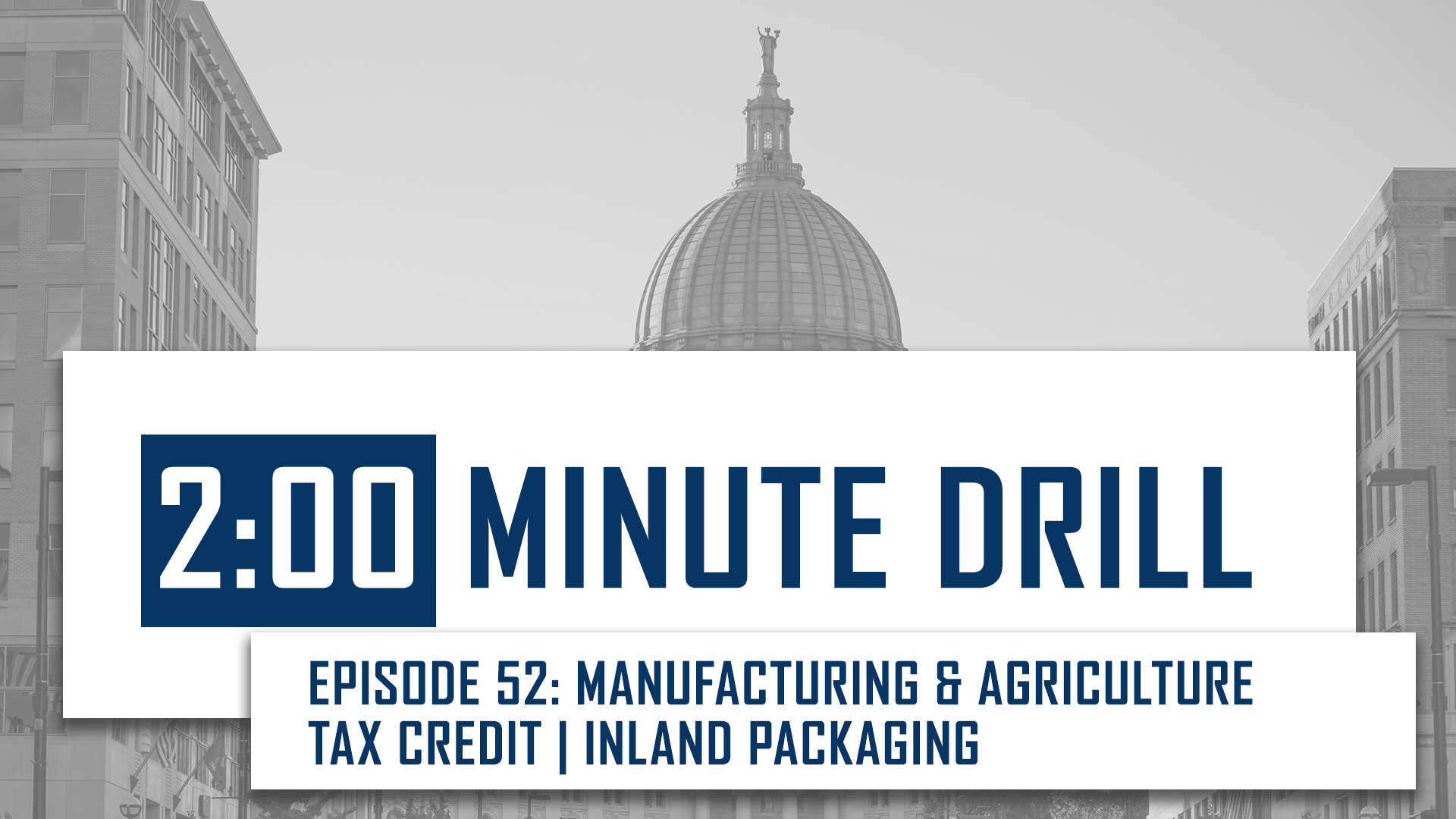By Kurt R. Bauer
Wisconsin Manufacturers & Commerce
Wisconsin’s transformation from an anti-business to a pro-business state has been remarkable, but it is also incomplete. There is more work to be done in order for our state to achieve its full economic potential.
Unfortunately, Wisconsin doesn’t control its own economic destiny and wrong-headed federal policies and uncertain global economic and geopolitical conditions are holding us back. But, that shouldn’t be an excuse to take our foot off the reform accelerator in order to improve Wisconsin’s business climate. Here are some reforms the 2015-16 Legislature should consider.
Hear how Right to Work is working in Michigan
Worker Freedom: Should joining a private-sector union be voluntary as it is in 24 states or should it be mandatory? Beyond the personal freedom component to this debate is the economic development argument. It is well-known that site selectors who decide where businesses expand or relocate shun closed shop states like Wisconsin in favor of Right to Work states like Iowa, Indiana and Michigan.
Regulatory Reform: A majority of the most expensive regulations that retard growth are federal, but there are two major state-level regulatory reforms that the Legislature should address.
The first is aligning the state and federal versions of the Family Medical Leave Act. Wisconsin enacted its version before President Bill Clinton signed the federal law in 1993. The Wisconsin law is now a duplicative compliance headache and should be replaced.
The second is Worker’s Compensation (WC) reform. WC costs in Wisconsin are higher and are growing faster than in almost any other state. Last summer, WMC formed a working group that includes health care providers, businesses (i.e., payers) and insurers to explore ways to reduce costs.
Taxes: Despite more than $2 billion in tax relief since Governor Scott Walker was first elected in 2011, Wisconsin is still in the top 10 of the highest taxed states, according to the most recent ranking from the DC-based Tax Foundation. Eliminating the highest personal income tax bracket, which was created by Governor Jim Doyle, would offer relief for many small businesses and should finally drop us out of the infamous top 10.
Infrastructure: Three of Wisconsin’s most important economic sectors – manufacturing, agriculture and tourism – depend on quality infrastructure. But as automobiles become more fuel efficient the gas tax is not generating the revenue needed to maintain our roadways, let alone build new ones. Bonding isn’t a long-term solution. The simplest way to fund roads is through a modest gas tax hike and increasing the vehicle registration fee.
Mining: Wisconsin doesn’t have shale oil, but we do have the sand used for hydraulic fracturing. As a result, Wisconsin is enjoying a sand boom that has created thousands of good paying jobs in largely economically challenged rural areas.
But the radical environmentalists who have so far failed to stop fracking have now targeted frac sand mining. Their goal is to stop sand mining by driving up local regulatory costs that create a patchwork of illogical rules. WMC will advance legislation to promote statewide regulatory certainty and uniformity.
Workforce Training: Wisconsin’s worker shortage will soon become a crisis, which is why Congress needs to act on immigration reform. At the state-level, Wisconsin should continue its impressive investment in worker training and rebuild our once strong apprenticeship programs.
# # #
Founded in 1911, Wisconsin Manufacturers & Commerce (WMC) is the state’s chamber of commerce and leading business association representing 3,800 employers of all sizes and from all sectors of the economy.





